I was recently in a discussion on loving with two distinct sides where one – the romantics – were laughed at and the other – the rationalists – were convinced that they are superior with their arguments based on reason and logic. I backed off after a few minutes as it was entertaining to simply listen, but it did set me thinking. I don’t know if any side can claim to be right. What I do know is that there was some misconception about the romantics who were viewed as ‘pathetic’ and some kind of a joke because of their intense emotional responses. I have an objection to being laughed at for my way of being, considering that I am emotional, though I also tend to analyse things which is the hallmark of the rationalist. If I were to put myself in one or the other category, I would choose the romantics. Here is my perspective:
I backed off after a few minutes as it was entertaining to simply listen, but it did set me thinking. I don’t know if any side can claim to be right. What I do know is that there was some misconception about the romantics who were viewed as ‘pathetic’ and some kind of a joke because of their intense emotional responses. I have an objection to being laughed at for my way of being, considering that I am emotional, though I also tend to analyse things which is the hallmark of the rationalist. If I were to put myself in one or the other category, I would choose the romantics. Here is my perspective:
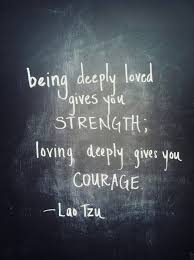 I completely disagree with the common belief that people who are emotional and love deeply are ‘needy’, weak, and look for support and strength from another. On the contrary, I think that it takes a special kind of simplicity and guts to open up to loving: you have to have the courage to let yourself be completely vulnerable and acknowledge your need – truths that are anathema to the independent, free-spirited, strong-willed, intellect-driven individual. Not so much of a problem for someone like me though. I revel in the strength of another person, I want to lean on them sometimes; not because I am weak or need support, but because I enjoy its presence. It’s awfully attractive. Just as I have the strength to hold on no matter what, I also have the strength to open my hands and simply let them go if that is what they want. It will not diminish my love in any way. It is precisely this that gives me the strength to let go if I must. Certainly though, I might fall apart before gathering myself up.
I completely disagree with the common belief that people who are emotional and love deeply are ‘needy’, weak, and look for support and strength from another. On the contrary, I think that it takes a special kind of simplicity and guts to open up to loving: you have to have the courage to let yourself be completely vulnerable and acknowledge your need – truths that are anathema to the independent, free-spirited, strong-willed, intellect-driven individual. Not so much of a problem for someone like me though. I revel in the strength of another person, I want to lean on them sometimes; not because I am weak or need support, but because I enjoy its presence. It’s awfully attractive. Just as I have the strength to hold on no matter what, I also have the strength to open my hands and simply let them go if that is what they want. It will not diminish my love in any way. It is precisely this that gives me the strength to let go if I must. Certainly though, I might fall apart before gathering myself up.
The truth is that we all have our own unique definitions of what love is and our own notions of how to love. It seems to me then that everyone experiences love in different ways. One of the rationalists explained that it wasn’t just about emotions, but also about keeping things ‘real’. She spoke about how she sensibly decided – after duly weighing the pros and cons and the ‘practicality’ of things – to end her relationship and move on. There were exclamations of dismay, commiseration, agreement and admiration from the others depending on where each one was on the rationalist-romantic spectrum. My question was, ‘But does that mean you were in love and managed to fall out of love at will?’ I did not get an answer to that. I think she had not considered either part of the question at all.
It is interesting to note that even when our minds work furiously to deny the existence of love, we are, in fact, acknowledging its presence. I believe it is a waste of time and energy to deny love. 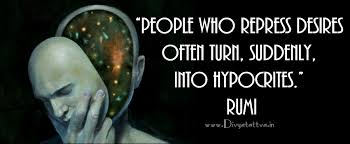 Of course, you may decide not do anything about its presence, and you may have the capacity to suppress or ignore the feelings it generates, but you cannot dismiss its existence. It will remain with you like a thorn in the side or envelope you like a fragrance. Depends on which side of the fence you want to be on.
Of course, you may decide not do anything about its presence, and you may have the capacity to suppress or ignore the feelings it generates, but you cannot dismiss its existence. It will remain with you like a thorn in the side or envelope you like a fragrance. Depends on which side of the fence you want to be on.
Why would anyone label romantics as weak? From a romantic’s point of view, when you love, you have to be willing to suffer the ache of desiring possession, while having to relinquish control. You have to be ready to risk rejection, while being aware that you would continue to love helplessly despite the eventuality. Or, you have to have a heart that is large enough to love without being loved back in the same way or with a matching intensity, or perhaps have no reciprocation at all. What requires even more courage then is to acknowledge the love nonetheless and express it simply to honour its existence; to make up your own song and dance to it all the same just for the enjoyment and pleasure of having felt it at all. You must also have the capacity to fully immerse yourself in the thrilling experience of loving with abandon, while continually dealing with the fear of loss. Is there anything here that smacks of weakness? I think one has to be scarily brave to be that way.
Who says emotional people are weak?  Can you be weak if you have the nerve to suffer the chaos that are emotions and admit that there is no place for logic in magic; a difficult prospect to digest when you make the mistake of using your intellect where you should be using your heart. Sometimes the heart knows what the mind cannot rationalise and the intellect cannot explain. There is a realm beyond logic. You have to be willing to live with the roller coaster of feelings that love puts you through: your spirit surges, ebbs, bubbles, blazes, flows, wanes, and surges again – all in a span of minutes.
Can you be weak if you have the nerve to suffer the chaos that are emotions and admit that there is no place for logic in magic; a difficult prospect to digest when you make the mistake of using your intellect where you should be using your heart. Sometimes the heart knows what the mind cannot rationalise and the intellect cannot explain. There is a realm beyond logic. You have to be willing to live with the roller coaster of feelings that love puts you through: your spirit surges, ebbs, bubbles, blazes, flows, wanes, and surges again – all in a span of minutes.
For me, love is danger and safety. It is a see-saw of contradictions that drags us through hell while we experience heaven. It is delight standing on the shaky foundation of dismay. It is confusion and clarity, certainty and doubt, delusion and truth, self-deception and actuality, rapture and misery. Within that whirlpool is the possibility for a unique kind of happiness that is yours for the taking if you have the courage.
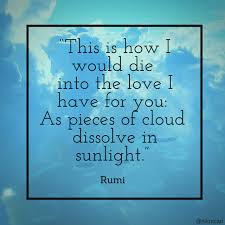 Indeed, love appears to be the ultimate challenge in that it brings us to a place where we have to face our most dreaded fears, each individual dealing with their own unique set of things. I sometimes think that it is a most peculiar feature of humans to be compelled to the condition of loving. Why do we so desire to subject ourselves to a continuous and gnawing restlessness? My reason is that it is inextricably linked with the deepest sense of beauty, contentment and peace.
Indeed, love appears to be the ultimate challenge in that it brings us to a place where we have to face our most dreaded fears, each individual dealing with their own unique set of things. I sometimes think that it is a most peculiar feature of humans to be compelled to the condition of loving. Why do we so desire to subject ourselves to a continuous and gnawing restlessness? My reason is that it is inextricably linked with the deepest sense of beauty, contentment and peace.
Why do we put ourselves in a state of continual agitation with the ache of longing while not being clear what it is that we long for? My thought is that what we long for is possibly the intimacy of possession, while also wishing for a little psychological distance that gives us breathing space to explore at leisure the incredible mystery of another’s mind. You just cannot ever say, ‘There! I know all that is in there.’ And because you can never fathom it, you want to possess it and know it. It’s adventure! For a romantic, love goes much beyond outward actions; there is always an element of being blissfully immersed in some way. There is a striving to merge and unite, while yet trying to safeguard the individual identity. The romantic will see neither contradiction, nor dilemma in achieving that! You just dissolve and yet exist, like the salt water of the ocean: you are the flavour that cannot be seen; only felt, but you are integral to defining the nature of the whole.
I find it rather wonderful to ponder on the fact that it is human nature to want to be elevated to a higher plane of consciousness; 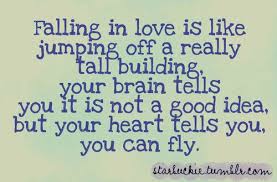 to strive towards we often know not what: maybe something divine; like the essence of what the Sufis captured so well. Love touches all humans in some way and gives us the means to rise higher. We do not ‘become’ divine when we love, we simply find and unlock the divinity in ourselves that is already existent.
to strive towards we often know not what: maybe something divine; like the essence of what the Sufis captured so well. Love touches all humans in some way and gives us the means to rise higher. We do not ‘become’ divine when we love, we simply find and unlock the divinity in ourselves that is already existent.
Through all of the contradictory feelings that we experience, love brings us to a state of exaltation. It is an interesting thought that loving someone is a matter of self-interest: it is a journey of self-discovery. It is amusing that love challenges the sense of order and structure that define the intellect, and laughs in its face reveling in the entropy of emotions it causes. 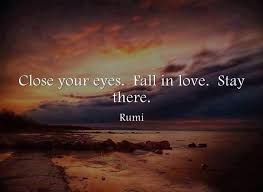
Perhaps this is the difference between rationalists and romantics: Romantics recognise the need for love and actively seek, find and revel in the experience of loving. They are willing to open themselves up to unimaginable pain, but will always let their love be known to the one that triggers the riot of emotion in them. It is about honesty. There is no other way to be when love is pure. On the other hand, rationalists probably need to put it all in context, in neat little packets of reason and logic before they decide whether to let themselves experience it depending on whether or not it will impinge on or disturb their routine lives. They weigh whether there is a ‘future’ in it, whether it is ‘practical’, whether there is proximity. Too many conditions! Ask a romantic about those things and you will hear, ‘Huh? Those are not even considerations!’
The question remains: heart over intellect or the other way round? There is no right or wrong. It is about how we process our own unique realities.
Only, I don’t understand why it has become fashionable to consider being emotional a weakness.

articulately expressed..
Digressing from the topic of love and looking from a broader perspective, this same idea could be the reason for the eternal conflict between cynicism and hope. There is vulnerability and emotion in the hopeful. And then there are rationalists who try to place it in “neat packets”, as you said. Hope, indeed is considered weak today.
LikeLike
Thank you. I do believe that hope is a human instinct central to all our actions and endeavours.
LikeLike